Sophie Monks Kaufman considers the political atmosphere into which each of the Paddington films has been released, and how the marmalade-loving bear has gone from an undocumented immigrant to a British passport holder.

The English creator of Paddington Bear, Michael Bond, lived to see the first film adaptation in the current franchise. Talking to The Guardian in November 2014 on the occasion of its release, he explained how his cub was inspired by the sight of child evacuees passing through London. ‘They all had a label round their neck with their name and address on and a little case or package containing all their treasured possessions. So Paddington, in a sense, was a refugee, and I do think that there’s no sadder sight than refugees.’
Solidarity with refugees was in the DNA of both Bond’s books and Paul King’s loyal adaptation, but not within the walls of the Home Office. Launched the same year as Paddington, the Immigration Act 2014 was designed to make it difficult for ‘irregular’ migrants seeking bank accounts, driving licences and housing. It also removed key protections for Commonwealth citizens in the UK, laying the groundwork for the Windrush Scandal.

Paddington is an illegal immigrant. Stowing away in a boat from Darkest Peru, bringing industrial amounts of marmalade yet no formal paperwork, would have put him firmly in the crosshairs of the hostile enivronment policy announced in 2012 by a Conservative-Liberal coalition government. The goal was to make life so hard for people without leave-to-remain status that they would emigrate of their own accord.
This is a far cry from the mythological snowglobe London sold to Aunt Lucy and Uncle Pastuzo in the 2014 film’s opening sequence. A British explorer from the Geographers’ Guild has come to the Amazon jungle with the intention of shooting a rare bear. After bears save his life, friendship supplants violence and he leaves them with an invitation, ‘If you ever make it to London, you can be sure of a very warm welcome.’
After tragedy strikes, the warm welcome waiting in London prompts Aunt Lucy to send off her adoptive son Paddington. They echo Bond in a conversation that expresses the tension of an immigrant seeking acceptance in a new land.
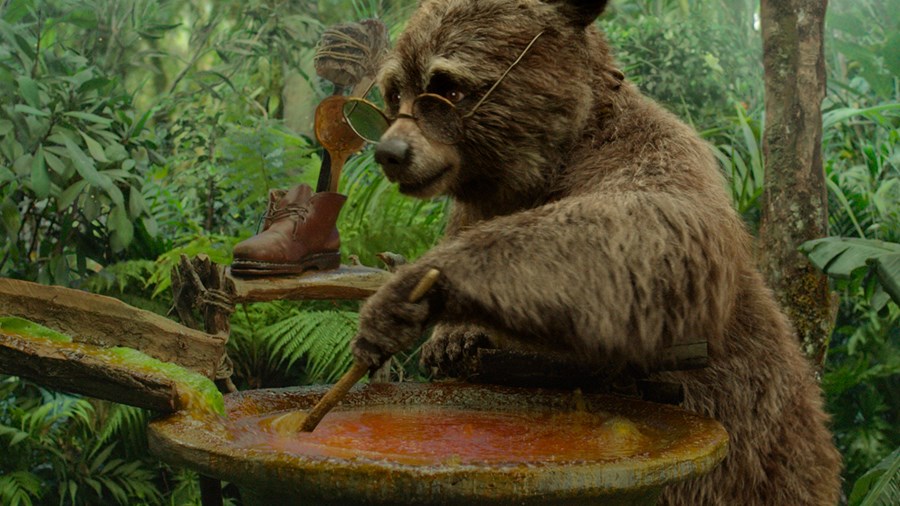
Paddington (2014)
Aunt Lucy: ‘You must find a new home in London.’
Paddington: ‘But I don’t know anyone in London. What if they don’t even like bears?’
Aunt Lucy: ‘You know, there was once a war in the explorer’s country. Thousands of children were sent away for safety, left at railway stations with labels around their necks and unknown families took them in and loved them like their own. They will not have forgotten how to treat a stranger.’
Paul King is canny enough to pitch this ideal against a niggling anxiety. A bear cub is embarking alone to a capital city where, as early as 2013, billboards roared, ‘In the UK illegally? Go home or face arrest’.
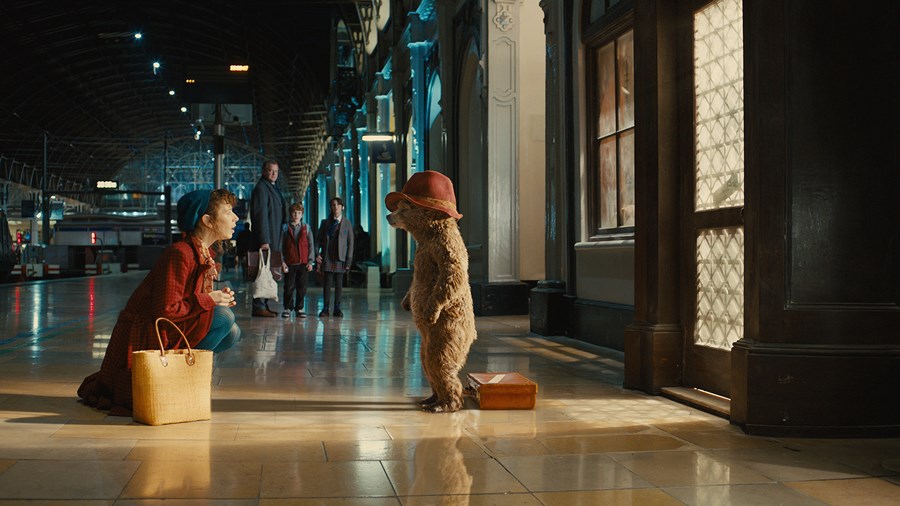
Paddington (2014)
The critical and commercial success of Paddington can be attributed to its status as a joyous, funny, clever family film with a strong allegorical spine that offers succour and moral clarity to viewers of all ages. Paddington’s optimism is contagious and the dreamed of new home comes after the Brown family brings him back to live in Windsor Gardens, however Peter Capaldi’s curtain-twitching neighbourhood-watch character Curry is a walking embodiment of The Hostile Environment, trying at every point to paint the cub’s arrival as an ominous portent of things to come. Speaking in the fearmongering language of a politician, he warns ‘it’s only one at first’.
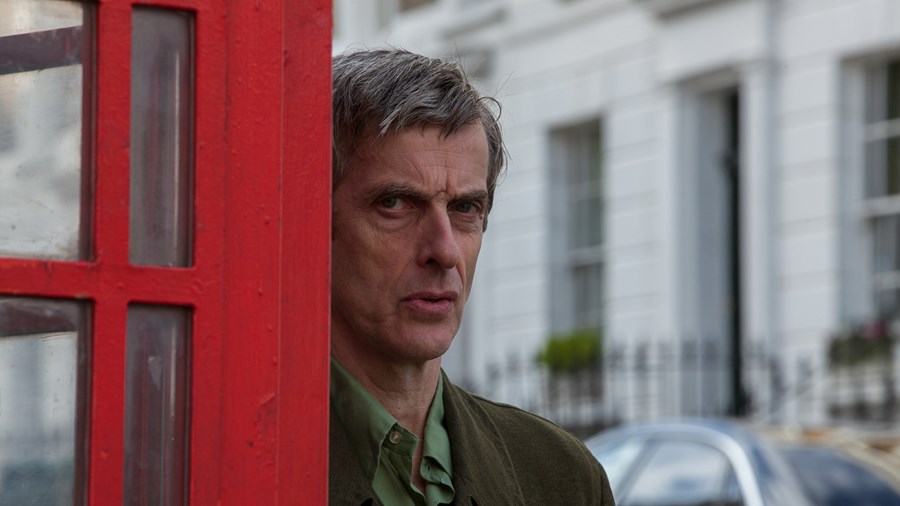
Paddington (2014)
King gives this attitude short shrift, showing not just how the bear enriches his neighbours’ lives but subtly displaying that the same is true of a demographic that in 2018 the Home Office would subject to wrongful deportations and the stripping of their domestic rights in a collective trauma now known to history as the Windrush Scandal. Across both Paddington and Paddington 2 (2017), a West Indian calypso band plays for what is almost a fourth-wall-breaking musical interlude, melodies spritzing a soul that should never be in question.
Paddington 2 was released into a post-Michael Bond world – the author died on the final day of principal photography. It was also released into a post-Brexit Britain. Anti-European campaigning in the run-up to the EU referendum saw an amping up of dog-whistle racism, not least Nigel Farage’s infamous Breaking Point poster. Against this dehumanising backdrop, it was nourishing to return to Windsor Gardens, where all colours and creeds unite against the forces that seek to divide us.
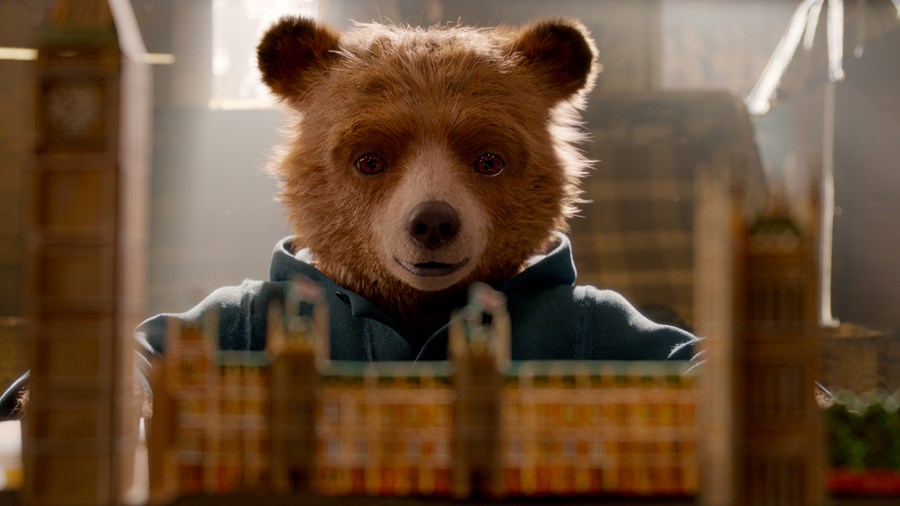
Paddington 2 (2017)
Most moving about Paddington Bear is, as Mr Brown remarks, ‘He looks for the good in all of us and somehow, he finds it.’ Rather than hardening before the suspicions of his political enemies, Paddington maintains an openness that reveals deep reserves of humanity. King makes this humanity the wellspring of his adaptation. His London is entertainingly recognisable (tourist hotspots are plot points), with narrative events powered by communities coming together and never giving into a fear of ‘the other’.
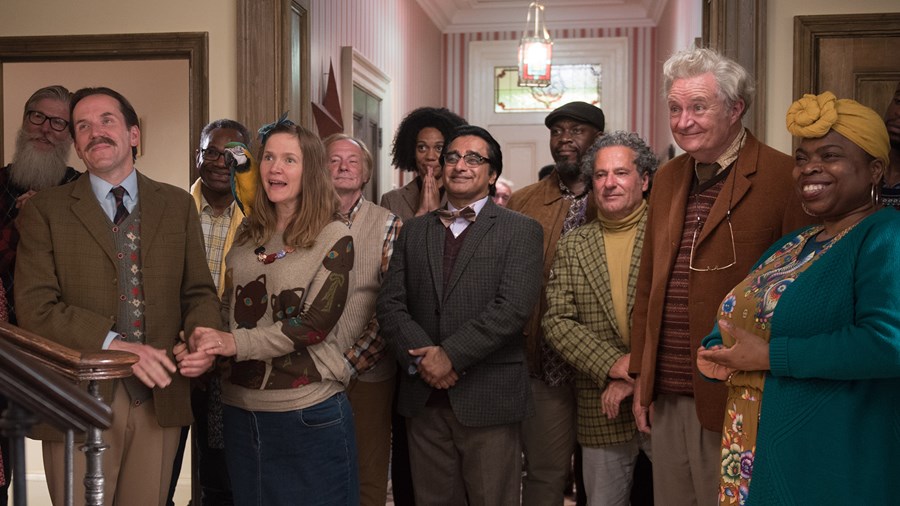
Paddington 2 (2017)
For the last decade, the Paddington films have been a mainstream antidote to the anti-immigration fever raging around Westminster. So, it’s audacious that in the run-up to the release of the third film, Paddington in Peru, Prime Minister Keir Starmer issued Paddington with a passport. Commentators have pointed out that, in reality, Starmer’s government would deport Paddington or see him languishing aboard the Bibby Stockholm.
Or perhaps, in the absence of a safe crossing, the young cub would have drowned years ago on his way over – far from the last child to die in this way on Sir Keir’s watch. Nonetheless, the bear’s popularity and marketability has elevated him to the status of what author Nikesh Shukla calls ‘the good immigrant’. This concept cements the notion that most immigrants are bad actually, by having an exception that proves the rule. As our sweet little bear has been cynically co-opted, what better time to remember the image underlying Paddington’s creation: who is wearing a label around their neck today? Who needs a new family to love them like their own?
WATCH PADDINGTON IN PERU IN CINEMAS




